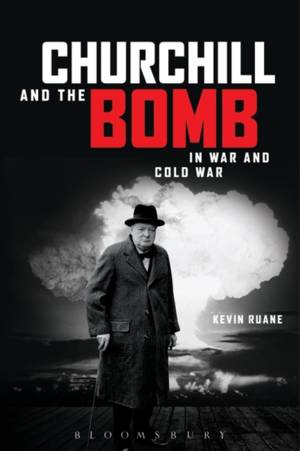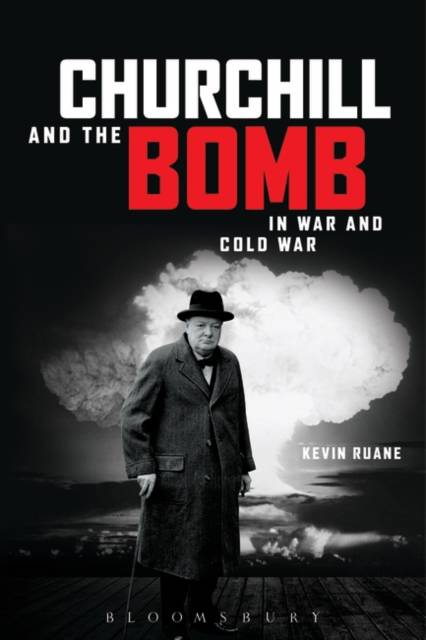
- Retrait gratuit dans votre magasin Club
- 7.000.000 titres dans notre catalogue
- Payer en toute sécurité
- Toujours un magasin près de chez vous
- Retrait gratuit dans votre magasin Club
- 7.000.0000 titres dans notre catalogue
- Payer en toute sécurité
- Toujours un magasin près de chez vous
121,45 €
+ 242 points
Format
Description
Covering the development of the atomic bomb during the Second World War, the origins and early course of the Cold War, and the advent of the hydrogen bomb in the early 1950s, Churchill and the Bomb in War and Cold War explores a still neglected aspect of Winston Churchill's career - his relationship with and thinking on nuclear weapons. Kevin Ruane shows how Churchill went from regarding the bomb as a weapon of war in the struggle with Nazi Germany to viewing it as a weapon of communist containment (and even punishment) in the early Cold War before, in the 1950s, advocating and arguably pioneering what would become known as "mutually assured destruction+? as the key to preventing the Cold War flaring into a calamitous nuclear war.
While other studies of Churchill have touched on his evolving views on nuclear weapons, few historians have given this hugely important issue the kind of dedicated and sustained treatment it deserves. In Churchill and the Bomb in War and Cold War, however, Kevin Ruane has undertaken extensive primary research in Britain, the United States and Europe, and accessed a wide array of secondary literature, in producing an immensely readable yet detailed, insightful and provocative account of Churchill's nuclear hopes and fears.
While other studies of Churchill have touched on his evolving views on nuclear weapons, few historians have given this hugely important issue the kind of dedicated and sustained treatment it deserves. In Churchill and the Bomb in War and Cold War, however, Kevin Ruane has undertaken extensive primary research in Britain, the United States and Europe, and accessed a wide array of secondary literature, in producing an immensely readable yet detailed, insightful and provocative account of Churchill's nuclear hopes and fears.
Spécifications
Parties prenantes
- Auteur(s) :
- Editeur:
Contenu
- Nombre de pages :
- 424
- Langue:
- Anglais
Caractéristiques
- EAN:
- 9781472523389
- Date de parution :
- 08-09-16
- Format:
- Livre relié
- Format numérique:
- Genaaid
- Dimensions :
- 155 mm x 236 mm
- Poids :
- 816 g

Les avis
Nous publions uniquement les avis qui respectent les conditions requises. Consultez nos conditions pour les avis.






